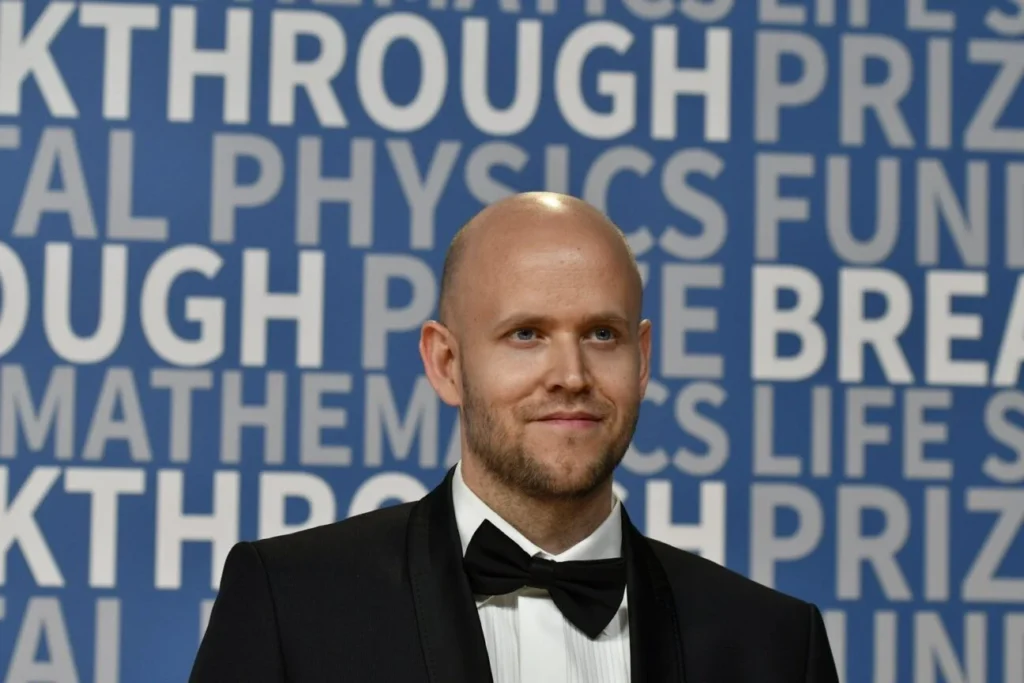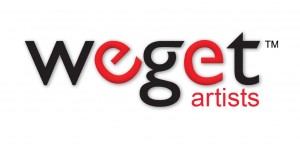
It’s been some week for Daniel Ek.
Yesterday (April 23), Spotify‘s share price jumped up by over 11% following the company’s Q1 results announcement, in which it confirmed its biggest-ever quarterly operating profit.
That share price rise gave Spotify a market cap of approximately USD $60 billion at close of trading on the NYSE yesterday, enough to exceed the market cap value of music’s biggest rightsholder, Universal Music Group.
(UMG’s market cap on the Amsterdam Euronext stood at approximately USD $53.5 billion at close of yesterday, according to YCharts).
Spotify’s share price on the NYSE has settled back down today (April 24), falling by around 7% at the close of trading… but not before Spotify CEO Ek cashed in a small mountain of shares.
According to a filing with the SEC spotted by MBW, Daniel Ek sold 400,000 share units in Spotify earlier today, with an aggregate market value of USD $118.8 million. JP Morgan acted as broker for Ek’s share sale.

The move is the fourth time in the past 12 months that Ek has cashed in some of hisSpotify stock:
- In July 2023, Ek sold 675,000 shares for $100 million in proceeds;
- In October 2023, he sold 400,000 shares for $64.2 million in proceeds;
- And in February this year, Ek sold 250,000 shares for $57.5 million in proceeds
Across these four transactions (today’s included), Ek has cashed out approximately $340.5 million in Spotify shares since last summer.
Ek’s latest $118.8 million cash-out comes as one particular sector of the music business – music publishers – isn’t feeling too enamored with Spotify.
Last week, Spotify confirmed that it had changed the formula by which it pays out mechanical royalties to publishers and songwriters in the United States.
This change sees Spotify re-categorize its Premium subscriptions as “bundles”, because they offer users access to both music and audiobook content.
This is no arbitrary change: by re-categorizing Premium subscriptions as “bundles”, under terms of a 2022 ruling from the US Copyright Royalty Board, Spotify believes it can pay a lower rate of mechanical royalties for the use of music on its platform in the United States.
David Israelite, CEO and President of the National Music Publishers’ Association, responded to news of Spotify’s ‘bundles’ re-categorization with fury last week, commenting: “It appears Spotify has returned to attacking the very songwriters who make its business possible.”
Israelite added: “Spotify’s attempt to radically reduce songwriter payments by reclassifying their music service as an audiobook bundle is a cynical, and potentially unlawful, move that ends our period of relative peace.
“We will not stand for their perversion of the settlement we agreed upon in 2022 and are looking at all options.”
Daniel Ek was the single largest shareholder in Spotify at the close of 2023, with ownership/proxy ownership of 30.86 million ordinary shares in the company, or15.6% of the total, according to SEC filings.
However, Ek held these shares via his D.G.E Investments vehicle, and amongst the 30.86 million are 16.632 million shares ultimately owned by Tencent Holdings thatEk/D.G.E represents via “irrevocable proxy”.
Discounting these Tencent shares, Ek’s ultimate personal ownership of ordinary shares in SPOT as of December 2023, then, was 14.224 million shares (including warrants), which – in terms of Spotify’s current share price – were cumulatively worth a shade over USD $4 billion at the time of publication of this article.

Yesterday (April 23), Spotify announced its Q1 2024 results, confirming total revenue growth of 21% YoY (at constant currency) to EUR €3.247 billion.
The company counted 239 million paying subscribers globally at the close of March, up by 3 million vs. the end of 2023.
The company’s Gross Margin finished at 27.6% in Q1 2024, up from 25.2% in Q1 2023.
In terms of profitability, Spotify posted an operating income of €168 million ($182.41m), which it noted in its investor presentation was “a new quarterly high” and reflected “lower personnel and related costs and marketing spend”.
